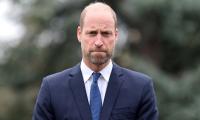HARIPUR: Speakers at a seminar here on Wednesday shed light on the challenges being faced by the news industry in the digital era and called for a robust approach by academia and journalists to cope with them.
Faculty members and students from different departments attended the seminar titled “Media Ethics and Journalism” organized by the Law Department of Haripur University.
The speakers discussed the impact and consequences of the fake news and how this has compromised the quality of journalism.
“Reliance on social media and ever increasing digital consumerism without having data storage and data hosting facilities has knowingly or unknowingly facilitated the manipulation the flow of information,” observed Muhammad Sadaqat, a freelance journalist and human rights defender, in his presentation “fake news and ethics of journalism navigating truth in modern information landscape”.
Speaking about the threats to ethical journalism he listed the dying culture of newspaper reading, investigative journalism, political and government pressures, capitalization of media and digital surveillance as stumbling blocks.
He discussed the consequences of blindly sharing information received from unregistered and fake digital forums and the economic losses of nations, individuals, mental health complications and governance credibility.
He urged the government to protect the media industry to offset the negative effects of fake news.
“It is incumbent on media organizations, universities and governments to join hands and evolve a strategy to improve the quality of journalism,” he added.
He asked the participants to stop blindly sharing views and likes to the information from untrustworthy and unrecognized digital forums.
Journalist Riffatullah Orakzai said that with conventional media inching towards collapse, the universities must come up and devise strategies to prevent an anticipated massive job loss in the media industry that he believed would further deteriorate the situation.
He suggested to universities to design and offer specialized courses on social media as getting rid of the growing reliance on it was hardly possible and the challenges it was posing were getting complexed with every passing day. He discussed the challenges of media practitioners of remote and hard areas.















